A livestock guard dog programme overseen by Rewilding Portugal has just reached its impressive target, with the 101st dog handed over to a local farmer. By reducing livestock predation, the programme will support the recovery of the endangered and ecologically important Iberian wolf.
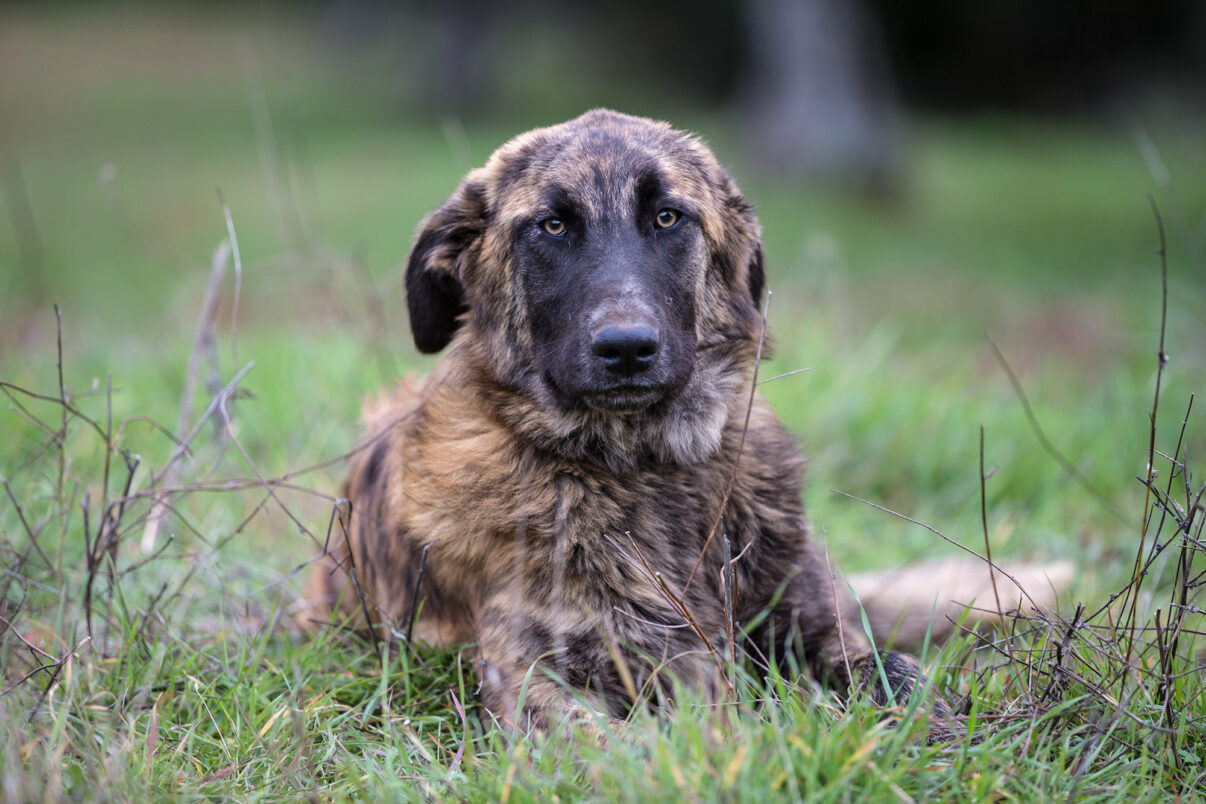
Living with wolves
Today, many European wolf populations are on the increase, which is great news because these keystone predators help to restore the health and functionality of wild nature. Yet the return of this iconic and ecologically important species throws up challenges, including the heightened risk of predation on livestock. One of the best ways to minimise such predation, and thereby enhance human-wolf coexistence, is to ramp up livestock protection measures.
Since early 2020, the Rewilding Portugal team have overseen a livestock guard dog programme, providing dogs free of charge to local farmers to enable them to better protect their sheep, goats, cows, pigs, and horses from predation by Iberian wolves. The programme has now reached an impressive milestone, with the 101st dog recently delivered to a livestock owner. Although the programme has reached its 100-dog target, the team will hand over a few more dogs, as part of the LIFE Wolflux initiative. The programme complements efforts by the Rewilding Portugal team to increase the availability of natural prey for the wolves by boosting local populations of roe deer.
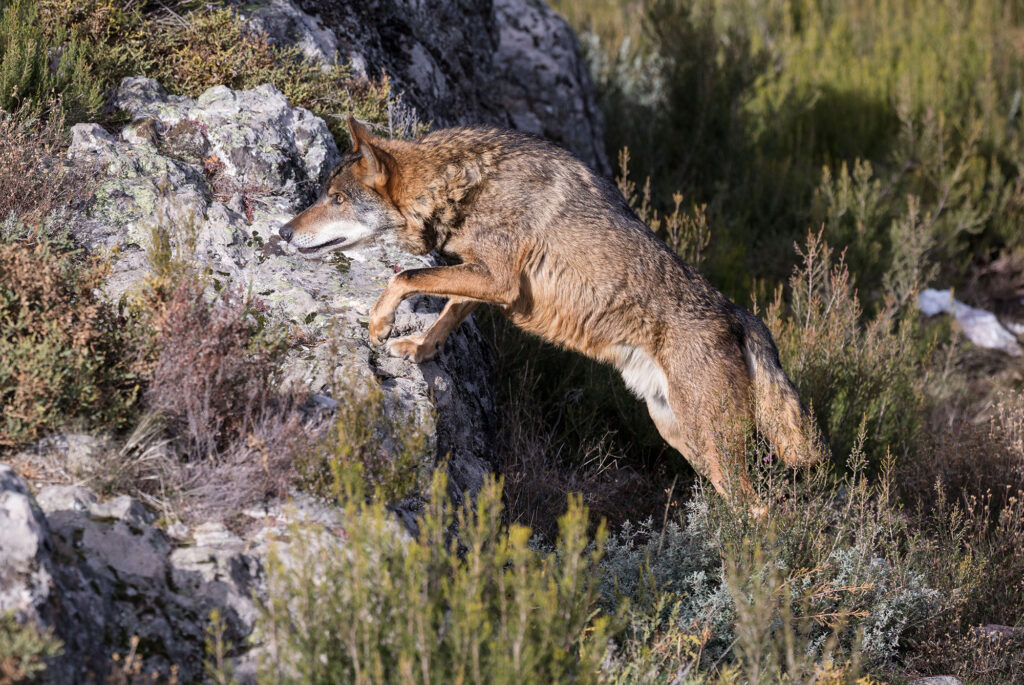
Beneficial impact
Marta Vieira, a veterinarian attached to the Rewilding Portugal team who is responsible for selecting, integrating, and following up on the progress of dogs, is happy with how the programme has rolled out.
“Although the dogs haven’t completely stopped wolf attacks, many farmers haven’t experienced a single attack since they received a dog. By and large guard dogs are effective. They will undoubtedly reduce predation by Iberian wolves and help farmers live alongside them, which is good for both people and nature.”
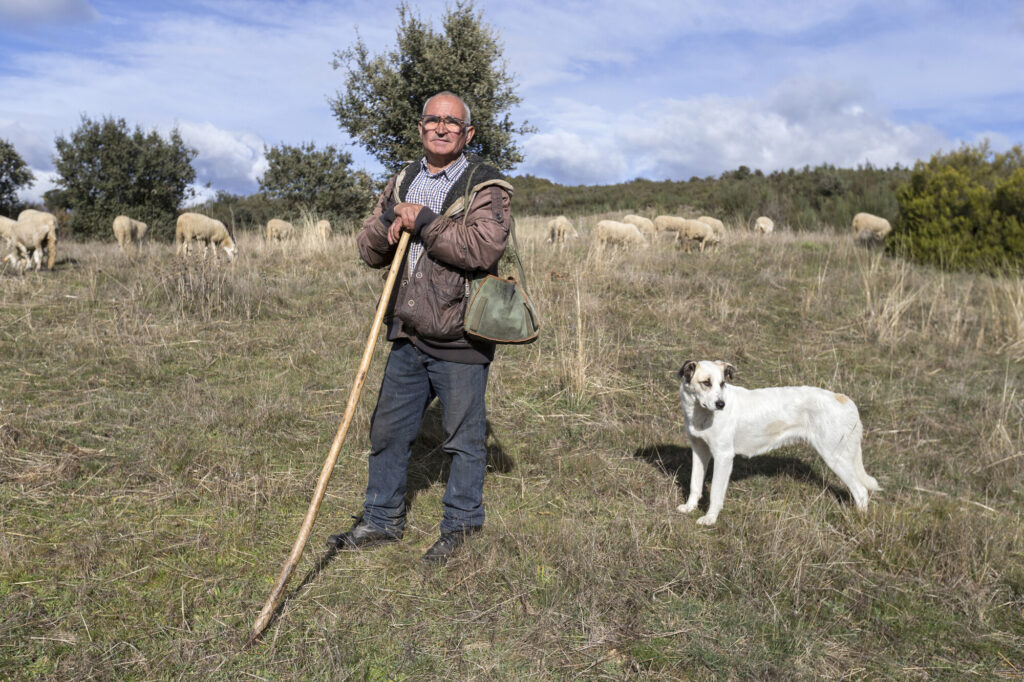
A proactive measure
Studies estimate that the Portuguese population of Iberian wolf (a subspecies of grey wolf) currently totals between 250-300 animals, divided in two by the Douro River. While the subpopulation north of the Douro is larger and more stable, south of the river there are only a handful of scattered packs. A lack of natural prey, such as roe deer, means these packs have no choice but to prey on livestock, which causes conflict with farmers and often results in the animal’s persecution.
While some livestock owners south of the Douro still use guard dogs, the tradition has died out in many areas – especially those where wolves are seldom seen. But with the Rewilding Portugal team working to support wolf comeback, embedding guard dogs with livestock in areas where wolves may return is a proactive measure which can pre-empt issues around coexistence.
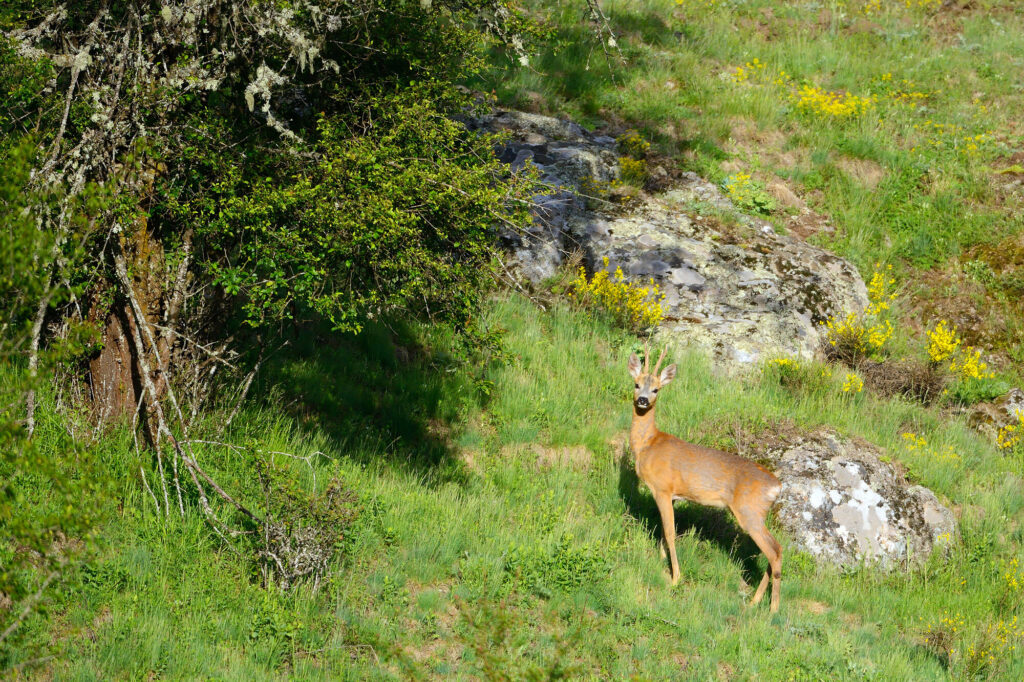
Comprehensive support
The dogs involved in the guard dog programme are handed over to livestock owners as puppies, sourced from litters of existing guard dogs. This enables them to be integrated into flocks and herds, and to create a strong bond with the animals they are supposed to protect. They are either of the Serra da Estrela or Cão de gado transmontano breeds – both of which have traditionally been used as guard dogs in Portugal.
The farmers who have received dogs are based in the Guarda, Aveiro, and Viseu districts of Portugal, with one in the neighbouring district of Castelo Branco. Sometimes members of the Rewilding Portugal team offer a dog to a farmer that has suffered from a wolf attack, or is at risk of suffering from one, sometimes farmers approach the team having heard of the programme. In addition to receiving a dog for free, farmers are given dog food for a year, while Rewilding Portugal covers every dog’s veterinary and insurance costs for two years. The team also provide farmers with support and advice to ensure the dogs integrate well with livestock.
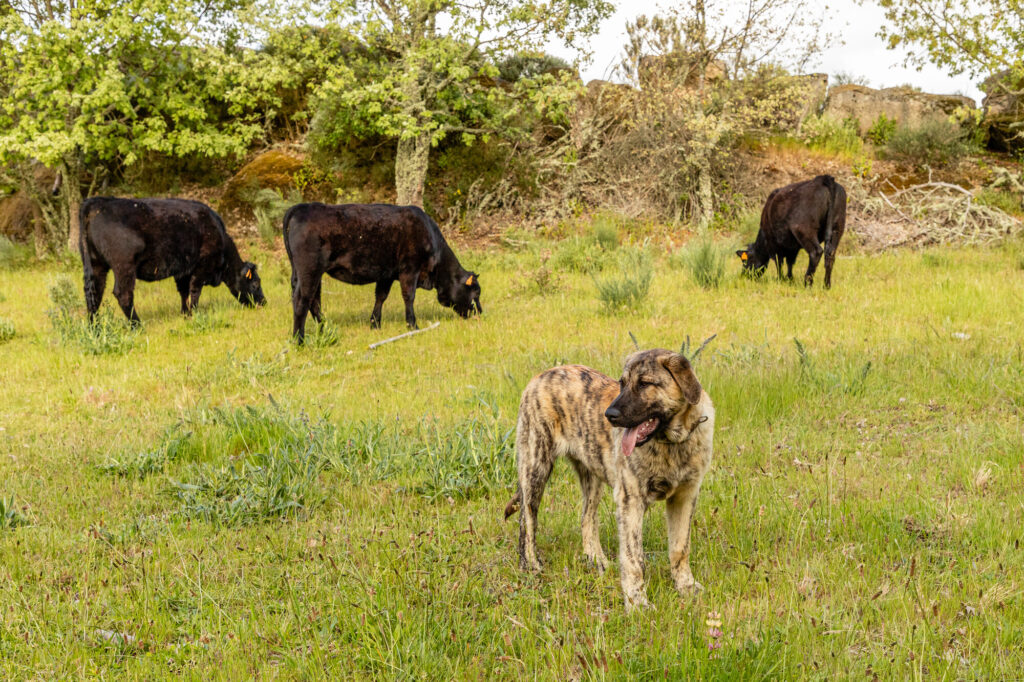
Building engagement
To better understand people’s attitudes to the Iberian wolf south of the Douro – and inform measures to support the animal’s existence and comeback – the Rewilding Portugal team conducted an eight-month study of public attitudes, ending in April 2020. Almost half of those interviewed were open to living alongside wolves, but only under certain conditions, including better protection for livestock.
“The programme has really helped us to build engagement with local farmer and raise the profile of rewilding and Rewilding Portugal,” says Marta Vieira. “Initially, many farmers in the area covered by the programme were sceptical about using guard dogs to protect cattle. But once they started to see how well it works, they started asking for them. People’s views on the effectiveness of guard dogs have definitely become more positive.”
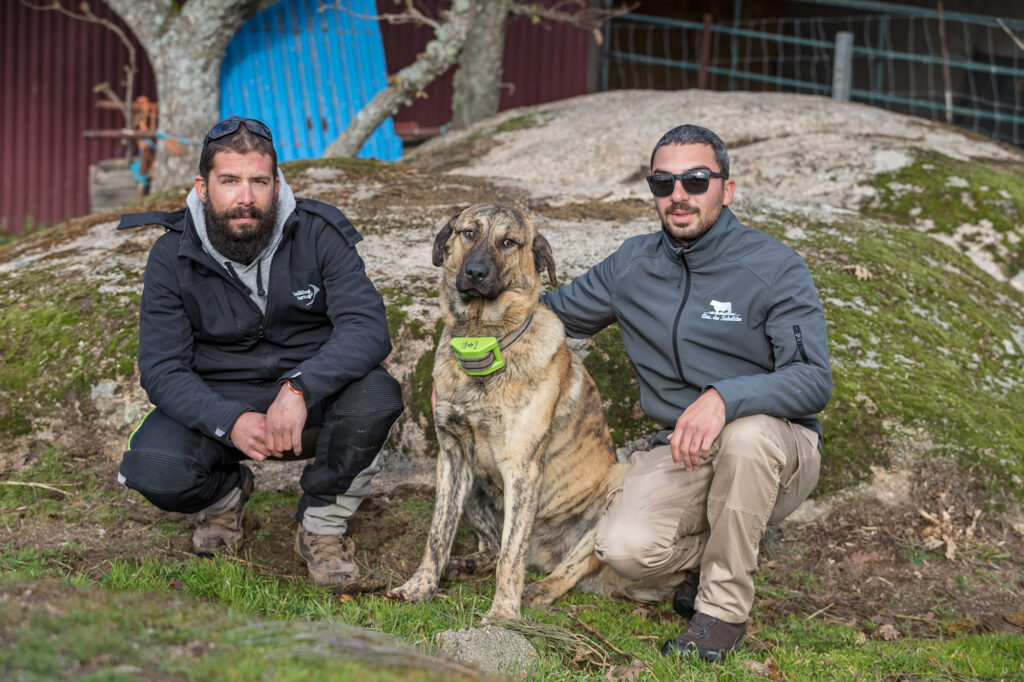
An expanding geographical focus
Moving forwards, the Rewilding Portugal team and partners will also work to increase the use of livestock guard dogs and enhance human-wolf coexistence through the recently launched LIFE LUPI LYNX initiative, which will focus on an area adjacent to that of the LIFE WolFlux initiative in Portugal, and across the Spanish border in Extremadura.
The LIFE WolFlux initiative is funded by the European Commission through its LIFE programme, and co-funded by the Endangered Landscapes Programme. The LIFE LUPI LYNX initiative is also funded through the LIFE Programme, with Rewilding Europe providing cofunding.